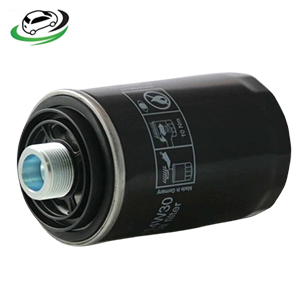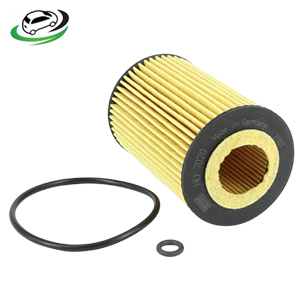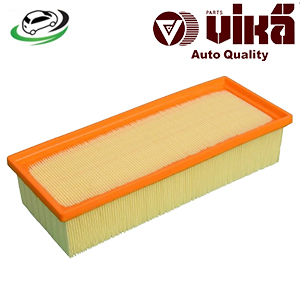-6%
Get Air Filter Element Sub-Assy AUDI A4-A5-Q5 3.2 FSI Engines 8K0133843E
The air filter element sub-assembly is a critical component in the air intake system of internal combustion engines, playing a vital role in ensuring the engine operates efficiently and effectively. This essay explores the function, types, design, materials, maintenance, and benefits of air filter elements, highlighting their importance in the automotive world.
Function of Air Filter Element Sub-Assembly
The primary function of the air filter element sub-assembly is to filter out contaminants from the air before it enters the engine. These contaminants can include dust, dirt, pollen, and other particulate matter that, if allowed to enter the engine, can cause significant damage. By ensuring that only clean air reaches the engine, the air filter element helps maintain optimal engine performance, fuel efficiency, and longevity.
Types of Air Filter Elements
There are several types of air filter elements, each with its own advantages and applications:
- Paper Air Filters: These are the most common type of air filters used in vehicles. Made from specially treated paper, they are designed to trap particles while allowing air to flow through. Paper filters are relatively inexpensive and easy to replace, making them a popular choice for many car owners.
- Foam Air Filters: Foam filters are made from polyurethane foam and are often used in off-road vehicles and motorcycles. They are highly effective at trapping dust and debris and can be cleaned and reused multiple times. Foam filters are particularly useful in environments with high levels of airborne particles.
- Cotton Gauze Air Filters: These filters are typically used in high-performance vehicles. Made from layers of cotton gauze, they offer excellent filtration and airflow. Cotton gauze filters can be cleaned and re-oiled, making them a durable and reusable option.
- Synthetic Air Filters: Synthetic filters are made from man-made fibers and offer superior filtration and airflow. They are often used in high-performance and heavy-duty applications where maximum engine protection is required.
Benefits of a Clean Air Filter Element
1. Improved Engine Performance
A clean air filter ensures that the engine receives an adequate supply of clean air, which is essential for efficient combustion. This optimal air-fuel mixture allows the engine to produce the maximum amount of power and operate smoothly.
2. Enhanced Fuel Efficiency
A clean air filter reduces the workload on the engine by allowing it to intake air more easily. This improved airflow reduces fuel consumption, leading to better fuel efficiency. Drivers can notice an improvement in miles per gallon (MPG), saving money on fuel over time.
3. Reduced Emissions
Clean air filters contribute to more complete and efficient combustion, which helps reduce the emission of harmful pollutants. This reduction in emissions is beneficial for the environment and can help vehicles pass emissions tests more easily.
4. Extended Engine Life
By preventing dust, dirt, and other contaminants from entering the engine, a clean air filter protects critical engine components from wear and damage. This protection extends the overall life of the engine, reducing the likelihood of costly repairs and breakdowns.
5. Cost Savings
Investing in regular air filter maintenance and replacement can save money in the long run by preventing expensive engine repairs and improving fuel economy. The relatively low cost of air filter replacements is a small investment compared to the potential costs of engine damage.
6. Optimal Air-Fuel Mixture
A clean air filter ensures that the engine receives the correct air-fuel mixture. This optimal mixture is crucial for efficient combustion, which not only improves performance but also prevents engine knocking and other issues related to improper combustion.
7. Protection for Other Engine Components
Clean air filters protect various engine components, including the mass airflow sensor (MAF), throttle body, and intake valves. These components are sensitive to contaminants, and a clean air filter helps keep them functioning properly.
8. Improved Acceleration
A clean air filter allows for better airflow, which can improve the vehicle’s acceleration. Drivers may notice a more responsive throttle and quicker acceleration, enhancing the overall driving experience.
9. Consistent Engine Operation
A clean air filter ensures that the engine runs consistently and reliably. It helps prevent issues such as stalling, rough idling, and misfires, which can be caused by an insufficient air supply.
10. Maintaining Manufacturer Specifications
Vehicle manufacturers design engines to operate with a specific air-fuel ratio. A clean air filter helps maintain this ratio, ensuring that the engine operates within the parameters set by the manufacturer. This adherence to specifications can also help maintain the vehicle’s warranty.
11. Better HVAC Performance
In vehicles where the air filter also serves the HVAC (heating, ventilation, and air conditioning) system, a clean filter ensures that the HVAC system works efficiently. It provides better air quality inside the vehicle and improves the performance of the heating and cooling systems.
12. Enhanced Driving Experience
Overall, a clean air filter contributes to a better driving experience by ensuring that the engine runs smoothly, efficiently, and reliably. Drivers can enjoy a vehicle that performs well, is fuel-efficient, and has a lower environmental impact.
Signs of worn out Air Filter
1. Reduced Fuel Efficiency
One of the first signs of a clogged or dirty air filter is a noticeable decrease in fuel efficiency. A restricted airflow forces the engine to work harder, leading to increased fuel consumption.
2. Decreased Engine Performance
A worn-out air filter can significantly affect engine performance. Symptoms include sluggish acceleration, reduced power, and difficulty maintaining speed. The engine may struggle to get enough air for optimal combustion.
3. Engine Misfires or Rough Idling
A clogged air filter can lead to an imbalanced air-fuel mixture, causing incomplete combustion. This can result in engine misfires, rough idling, and even stalling in severe cases.
4. Check Engine Light
Modern vehicles are equipped with sensors that monitor the air-fuel ratio. A restricted air filter can trigger the check engine light, indicating an issue with the engine’s air intake system.
5. Unusual Engine Noises
A dirty air filter can cause the engine to produce unusual noises such as coughing, popping, or spitting sounds. These noises often indicate that the engine is struggling to receive adequate airflow.
6. Black Smoke from the Exhaust
An insufficient air supply can result in an overly rich fuel mixture, causing black smoke to emit from the exhaust pipe. This is a clear indication that the fuel is not being burned completely.
7. Sooty or Dirty Spark Plugs
A rich fuel mixture resulting from a clogged air filter can cause the spark plugs to become fouled with soot and other deposits. This can lead to ignition problems and further decrease engine performance.
8. Air Filter Appears Dirty
Physically inspecting the air filter is an effective way to determine its condition. If the filter looks dirty, clogged, or covered in dust and debris, it is likely time for a replacement. A clean air filter should appear white or off-white.
9. Increased Emissions
A dirty air filter can increase the amount of unburned fuel in the exhaust, leading to higher emissions. This can cause the vehicle to fail emissions tests and contribute to environmental pollution.
10. Poor HVAC Performance
In vehicles where the air filter also serves the HVAC system, a clogged filter can reduce the efficiency of the heating and cooling systems. This can result in poor airflow inside the cabin and less effective climate control.
11. Frequent Replacement Indicators
If you find yourself replacing the air filter more frequently than the manufacturer’s recommended interval, it could be a sign that the driving conditions are particularly dusty or polluted, requiring more frequent maintenance.
12. Visible Dust and Debris in the Air Intake
Inspecting the air intake for signs of dust, leaves, or other debris can indicate that the air filter is not effectively trapping particles, suggesting it may be time for a replacement.
Follow us on Facebook for more parts.



